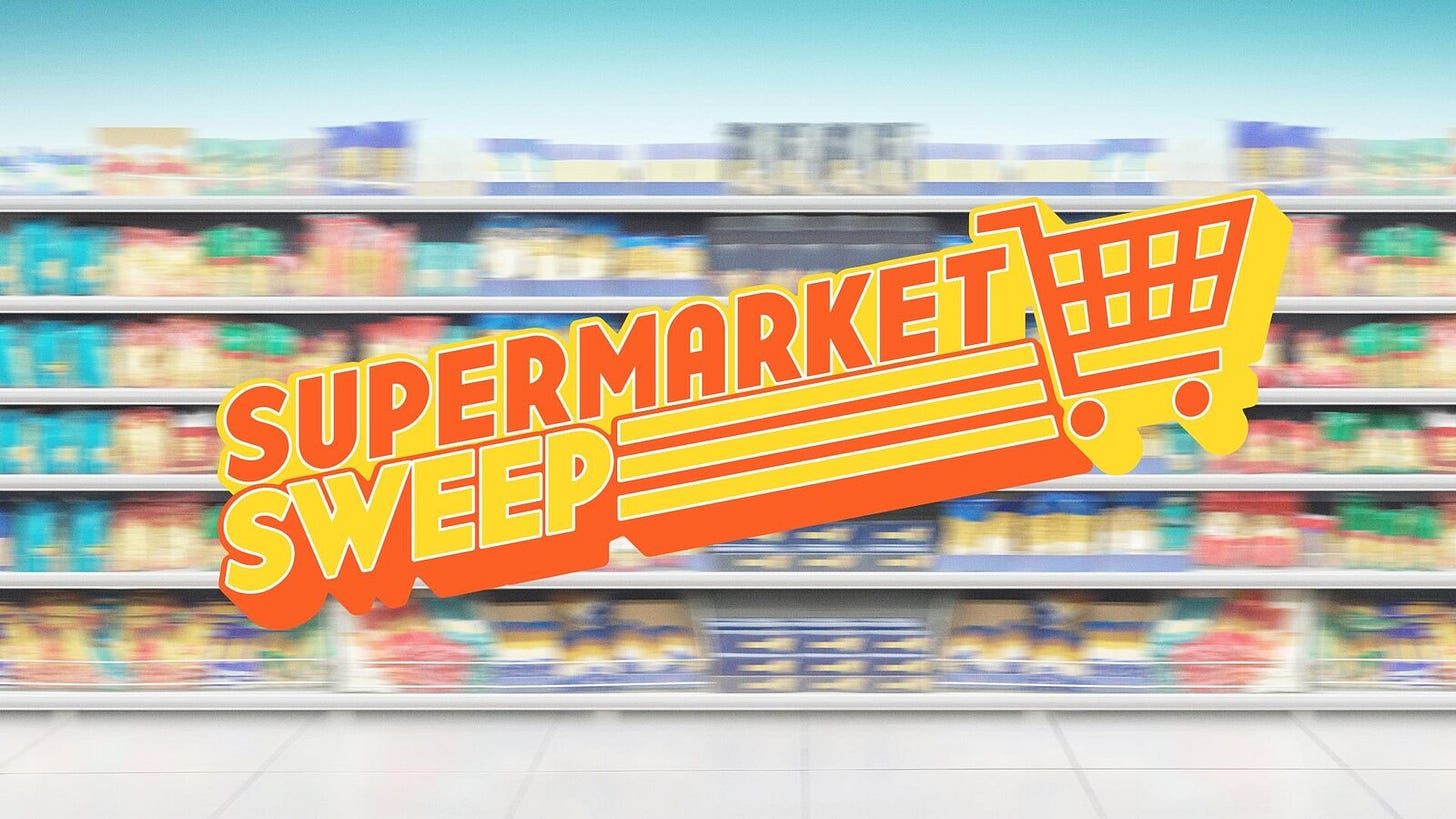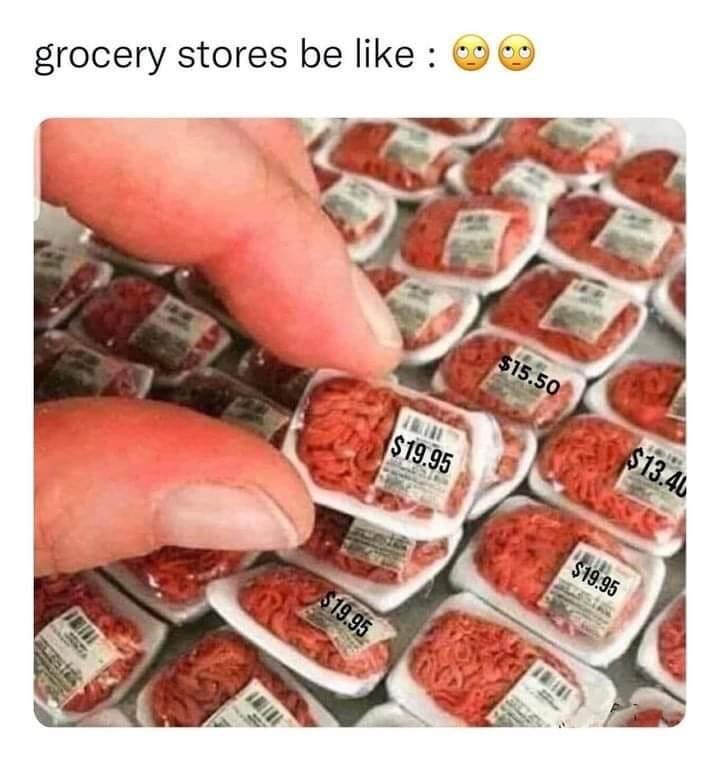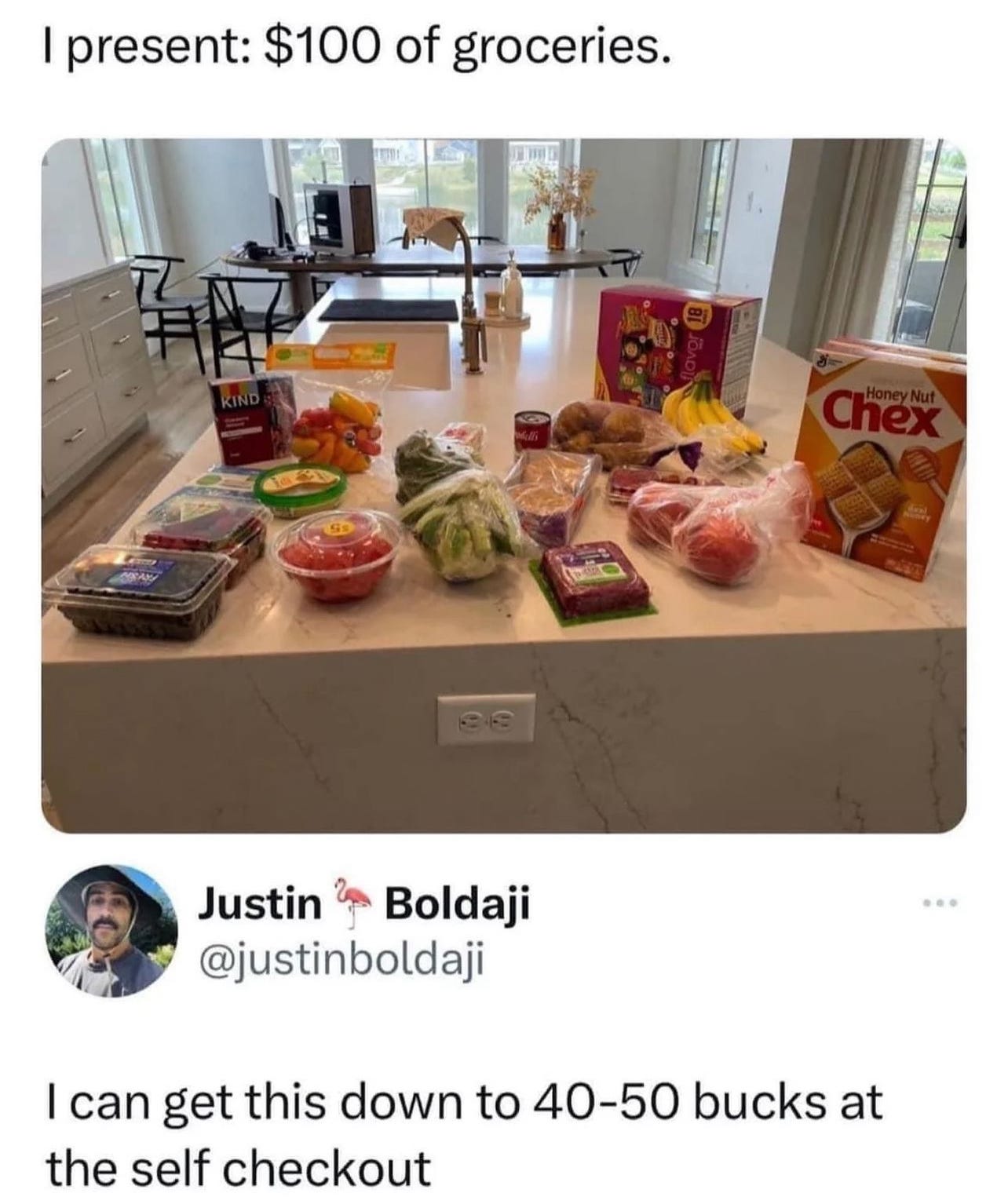Supermarket Sweep: The Tussle To Fight Grocery Inflation In Your Budget
This Is A Different Type Of SuperMarket Sweep. Instead Of Getting Paid At The End - You're Overpaying!
“I know this ______ was less last week!”
I hear someone recite those words every week like their favorite song when I have to grocery shop. Do you remember “Lamb Chop's Sing-Along, Play-Along”? Inflation has been the song that doesn’t end has been around beyond the pandemic, but we’re seeing it in areas like grocery/food-at-home. Some people started singing it not knowing what it was - because we need food to survive just because.
We love to counter a statistic over here, according to the Bureau of Labor Statistics, grocery prices have risen 1.2% year-over-year and the price increase for food away from home is 5.1% year-over-year. (March 2023 to March 2024) [source: NerdWallet]. If you’re looking at those stats, you probably think that the prices are finding, because that 1.2% doesn’t read much. But if you’re scrolling down the aisle, you probably have the same sentiment as Supermarket Sweep. But instead of getting paid to shop, you’re overpaying for things that were cheaper last week, last month, or even last year. We’re seeing grocery stores/vendors (the products and such) trying to recoup from the pandemic - greed and green (not your brussel sprouts, friend). The run-up in food costs began early in the pandemic when supply-chain tensions and worker shortages tussled with rampant demand for groceries. Now, recent developments continue to keep prices high, including droughts and extreme heat that have dampened the production time, price, and quality of fruits and vegetables.
Understanding Inflation's Impact:
I keep bringing up the CPI or Consumer Price Index, which talks through the average inflation you saw the month before because I often say that the reports don’t always reflect the reality of how much consumers are spending just to have the bare necessities. This is why I mentioned doing your own CPI reading/report (learn how to do that here) on how you spent money, especially on food, last month. This will not only have you check in on how you checked out, but also focus on the items you brought + the price of some of your core things increased. Use the reports and headlines to see where they apply to your budget, expenses, etc.
Something else I’m noticing - Shrinkflation. Which is the practice of reducing product quantity while keeping the price the same. So you go pick up the same cheese that you need for Taco Tuesday and you notice the price is the same yet the packaging looks as light as your presence. Talked about it here using a tweet from the Cookie Monster, yes him. This also impacts your usage more than your cost. If things are used quicker than usual, the unseen cost will happen.
The notion that “we have food at home” outweighs the costs of getting out. Both are siblings battling for your budget. Let’s get into some tips:
Tips To Fight Grocery Inflation:
Vibes + Value: Yes, make a list of not only what your needs are, but compare it to what your list was last month. What are the core things that you buy each month, then check to see how the cost went up to help you better define your food budget. Don’t just go into the store with vibes but know the value of your swiping, swiper.
Plan Your Meals: Planning meals helps create a grocery list and reduces impulse purchases. This is obvious, but going back to the “ooh” can hollow out your spending. I love social media for recipes but don’t know if it drains your budget. Another thing that has been is using things like pre-prepared meals at stores or even family meals to keep costs down and stretch them out, especially if it’s just you.
Shop on a Budget + Check the prices: Set a realistic grocery budget and stick to it. Utilize unit pricing to compare similar items; compare your month-to-month to define the month. Don't be afraid to shop around at different stores for better deals. Make sure you outline your budgeting apps to understand how much you’re spending. You know I say audit your wallet - look at what you spent over the last 3 months to know your baseline for grocery shopping budgeting.
Consider Generic Brands, BUT: Generic brands often offer the same quality for a lower price. If you can find a deal on the quality - get it. Have a budget, but find ways to stretch it if you can.
Embrace Sale Cycles: Many stores have predictable sale cycles. Stock up on non-perishables when they're on sale. Know when the prices change, when one store might have a sale one week, and if the other will soon. It’s taxing (no pun), but having a strategy will help you keep the stacks.
Big Box Stores (be mindful of family size): Wholesale clubs like Costco, Sam’s, and BJs can offer significant savings, but consider if the bulk quantities fit your household needs. I talked about this in a comment on my LI, I’m noticing not only more households bulk buying but using multi-homes to optimize shopping and spending on the uptick as well. Some things are worth buying in bulk, depending on how much you use them. Check to see how much it will last you vs the cost per use of it; especially for smaller households.
Need some food price trackers? I noticed more were outside of the US than in. Here’s some:
Basket: A community of shoppers that share prices and deals on everyday items
Flipp, Price Pad, ShopSavvy, Ibotta: Apps that compare prices at different stores
Tip: Do not only an audit of your spending on groceries but do an audit of your core things along with how long they last + how much you use. Can you buy those things in bulk to save? Do a restock every so many months. This will track your consumption and pair it with your currency (money).
We see the Memes. Made the jokes, but —
Inflation is eating up how much we have to actually.. eat. But understanding not only your core items/needs, meal prepping, and building your budget on the reality of your spending will help as much as possible. And I’m going to say this, if you need help with being able to afford groceries, look into resources like 211 or food pantries to help. In this shift of this newsletter, I want to help those who can’t afford the emergency or find any sort of emergency with their money. When food is on BNPL or 46% of people swipe their cards to pick up groceries in stores in April (outside of those who budget their spending against their credit cards)- you know there’s an issue there.
Share with me below what tips you have for not tipping the budget when it comes to your grocery shopping.
Add It Up -
Nadia
Budgeting has been a major thing for people as of late with inflation and rising costs! Even much so I started to offer a budget analysis within my services! Check it out on my website!











